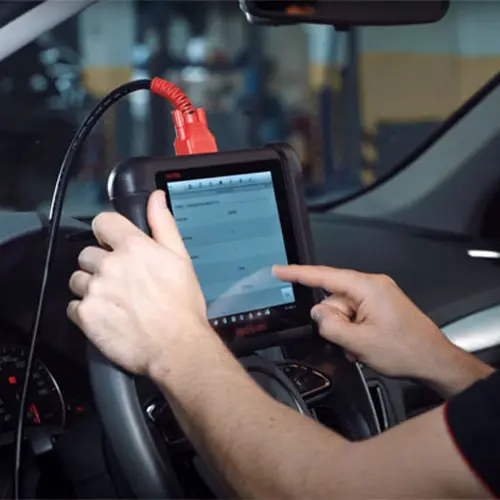What's The Current Job Market For Vehicle Lock Repairs Professionals?
페이지 정보

본문
Vehicle Lock Repairs: Ensuring Safety and Security
In a world where vehicle theft and break-ins prevail, ensuring that a vehicle's locking system is operating smoothly is important for both safety and security. Vehicle lock repairs incorporate a variety of repairs and upkeep treatments that deal with concerns related to locks and ignition systems. This article offers a summary of the kinds of vehicle lock problems, signs of malfunction, repair alternatives, and preventative measures while likewise addressing some often asked concerns.
Understanding Vehicle Lock Mechanisms
Vehicle locks use different mechanisms that differ among makes and models. The main parts of a vehicle lock system usually include:

- Key Cylinder: The part where the key is placed.
- Locking Bolt: Engages and secures the door when locked.
- Latch Assembly: Holds the door closed however can be disengaged when opening.
- Ignition Lock: Secures the ignition system of the vehicle.
Each of these components can be vulnerable to use and tear or unexpected failure, causing lock-related problems.
| Part | Description | Typical Issues |
|---|---|---|
| Key Cylinder | Accepts the key to operate the lock | Key jams, trouble turning the key |
| Locking Bolt | Mechanism that protects the door when locked | Bolt misalignment, stuck bolt |
| Lock Assembly | Engages and disengages to protect the door | Broken latch, inappropriate function |
| Ignition Lock | Secures the ignition to start the vehicle | Key will not turn, ignition failure |
Signs of Lock Malfunction
Vehicle owners should be vigilant for signs that their lock systems may be stopping working. Some typical signs of lock problems include:
- Difficulty Inserting Key: If the key does not quickly fit into the cylinder, there might be debris inside or use occurring within the cylinder.
- Stuck Key: A key that gets stuck while turning can suggest internal damage or misalignment.
- Locked Door Will Not Unlock: If a door declines to unlock, it might be due to a malfunctioning locking bolt or lock.
- Uncommon Noises: Grinding or clicking sounds while attempting to lock or unlock the door can indicate structural problems in the locking mechanism.
- Faulty Remote: If the key fob is not reacting, the problem may lie not just with the fob's battery however might likewise point towards problems in the lock receiver in the vehicle.
Repairing Vehicle Locks
Handling a vehicle lock problem can be complicated, and while some repairs can be taken on at home, others might need professional support.
DIY Repairs
Some small lock problems can be repaired without the aid of a mechanic. Here are a few examples:
- Lubrication: Regularly apply a silicone-based lubricant to key cylinders and locks to avoid sticking.
- Tidy the Key: Dirt on the key can cause jamming in the key cylinder. Tidy keys with rubbing alcohol to remove dirt or residue.
- Examine the Battery in the Remote: For remote key fobs, validate that the battery is practical by testing it with another vehicle or having it replaced.
Expert Repairs
For more significant problems, professional repairs may be needed. Typical professional services consist of:
- Key Replacement: If the key is lost or damaged, a locksmith can create a brand-new key or rekey the lock.
- Reprogramming Key Fobs: Sometimes the remote requirements to be reprogrammed to sync with the vehicle's receiver.
- Comprehensive Lock Replacement: In extreme cases, whole locking systems might require replacement due to harm or use.
Preventative Measures
To extend the lifespan of vehicle locks and avoid issues, consider the following preventative steps:
- Regular Maintenance: Periodic inspection and lubrication of locks can prevent future breakdowns.
- Prevent Excessive Force: Handling keys and doors carefully can minimize endure locking systems.
- Immediately Address Issues: If issues emerge, addressing them immediately can avoid further damage and more expensive repairs.
Often Asked Questions
Q: How do I know if my vehicle lock requires repair?A: Look for signs such as trouble placing the key, unusual sounds, or the door failing to lock or unlock. Q: Can I repair a stuck lock myself?A: Simple issues such as lubrication might
be dealt with at home; however, complicated issues usually require experts. Q: How much does it cost to repair a vehicle lock?A: Costs can vary widely based on the problem and vehicle type. Standard repairs may begin around ₤ 50, whereas lock replacements can cost numerous hundred dollars. Q: What ought to I do if I lose my car key?A: Contact a locksmith or your dealership for a replacement key. They may need your vehicle identification number (VIN )to produce a new key. Q: Are aftermarket keys as trustworthy as original keys?A: Aftermarket keys can be less trustworthy than OEM keys, as they might not follow the exact same specifications and quality standards.
Preserving the stability of a vehicle's lock system is
important for general security and safety. By acknowledging the indications of a breakdown, performing proper repairs, and implementing preventative steps, vehicle owners can prevent the trouble and prospective risks associated with lock issues. Ensuring that locks operate appropriately boosts not only the vehicle's safety however also the comfort of its owner.
- 이전글How to Use Ending Digits to Improve Your Satta King Guesses 25.07.25
- 다음글Best Gold IRA Accounts: A Complete Information For Buyers 25.07.25
댓글목록
등록된 댓글이 없습니다.
